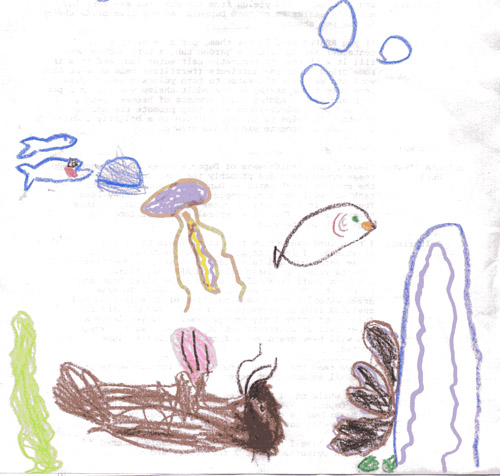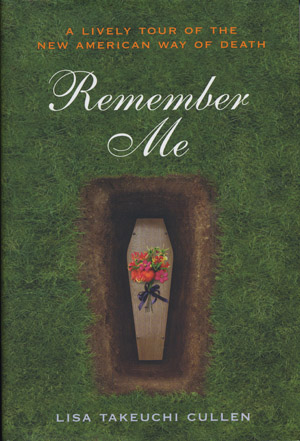Hottest sciencebloggers.
But come on, you already knew this was a blog of ideas, right?
Personally, I think the non-human primates were robbed.
Author Archives: admin
“Roman numerals? They didn’t even try to teach us that in school!”
Sadly, this makes me think more kids should have been watching M&M commercials in December of 1999. As reported by the Gainesville Sun:
Proofreaders at the University of Florida appear to have failed the Pepsi challenge.
UF has called off a massive giveaway of Gator T-shirts, paid for by Pepsi, upon realizing that Roman numerals intended to denote the year “2006” on the shirts actually translated into “26” in standard Arabic numerals.
“The giveaway was halted,” said Mike Hill, UF’s associate athletics director for external affairs. “We identified the problem on the first day of distribution and the giveaway was halted.”
The T-shirts, distributed to about 4,000 students picking up football tickets Tuesday, were also scrutinized by Pepsi proofreaders before distribution. Neither party noticed the problem initially, but staff distributing the shirts and the students who received them discovered the error Tuesday, Hill said.
To denote the year 2006, the shirts should have featured the numerals “MMVI,” not “XXVI.”
Granted that “26” and “2006” are just separated by a couple of place-holding zeroes — if you’re working with a number system that has ones, tens, hundreds, and thousands places. With Roman numerals, though, you’re adding it all up (with the occasional kicking back from the sum — IV being five less one, for example).
But here’s where etymology could help a lot. If you know that M stands for “mille” and “mille” indicates a thousand (which is why 1000 millimeters = 1 meter), you’d never think of getting to 2000 with anything other than MM.
And that’s why kids today need to start taking Latin again!
I’m hating their tactics, but I feel some lingering unease.
I am, as usual, late to the party reacting to the news that UCLA neurobiologist Dario Ringach has given up research on primates owing to “pressure put on him, his neighborhood, and his family by the UCLA Primate Freedom Project”. As reported by Inside Higher Ed:
Ringach’s name and home phone number are posted on the Primate Freedom Project’s Web site, and colleagues and UCLA officials said that Ringach was harassed by phone — his office phone number is no longer active — and e-mail, as well as through demonstrations in front of his home.
In an e-mail this month to several anti-animal research groups, Ringach wrote that “you win,” and asked that the groups “please don’t bother my family anymore.”
The North American Animal Liberation Press Office, a resource for the media on “animal liberation actions,” according to the group’s Web site, posted a news release from the Animal Liberation Front, a separate group that sometimes engages in illegal activities, about Ringach’s decision. The press release describes Ringach’s research as torturous and “a far cry from life saving research.” UCLA officials said that groups like ALF often misconstrue information, and that, in the interest of researchers’ safety, the university is not releasing detailed information about projects being attacked by such groups.
Colleagues suggested that Ringach, who did not return e-mails seeking comment, was spooked by an attack on a colleague. In June, the Animal Liberation Front took credit for trying to put a Molotov cocktail on the doorstep of Lynn Fairbanks, another UCLA researcher who does experimentation on animals. The explosive was accidentally placed on the doorstep of Fairbanks’s elderly neighbor’s house, and did not detonate.
To the Apple Computer Service Department
It is true I found the phone wait-time to even talk to a service representative to be rather long — even when I got up early on a Sunday morning to call you precisely because I wanted to avoid horrendous wait-times. And, your hold music was unnaturally cheery.
It is also true that I question the necessity for the representative to gather the details of my operating system, the additional RAM we installed, and the password I use to install new software on my hard drive when I was calling about a broken hinge on my laptop. (I did not bring this up with the rep on the phone, though, because I imagine she had been trained to fill out every single entry on the intake form, and I didn’t want to increase the next person’s wait-time.)
The shipping box with which I was to return my laptop for repair arrived a day later than I was told it would. (And I am dying to know why the local “authorized Apple repair” shops are no longer allowed to work on iBooks.)
But, really, what I want to tell you, is this: I received the email late Thursday night saying that the repair had been completed and to allow 2 business days for the computer to be shipped back to me. And, the computer arrived Friday morning, ahead of the long weekend.
You guys are the best.
Calls from students to your home.
Since Julie blogged about a call to her home from a student who wanted to add her class, I thought I’d add a story of my own, from waaaay back:
Friday Sprog Blogging (excess content!): design issues.
This morning, the Free-Ride family heard the news that McDonald’s had finally capitulated to hedgehog campaigners and redesigned the container for its McFlurry ice cream so that it is no longer a hedgie death-trap.
Elder offspring: What was the problem?
Dr. Free-Ride’s better half: The hedgehogs would find the containers and push their heads in to lick the sweet leftover ice cream, but then they would get stuck —
Younger offspring: I don’t think ice cream is good for hedgehogs.
Dr. Free-Ride’s better half: — and because they couldn’t get back out, they’d starve to death.
Elder offspring: Maybe they wouldn’t starve if there was enough leftover ice cream stil in the container.
Dr. Free-Ride’s better half: Anyway, to keep the hedgehogs from getting stuck, they made a new container with an opening that’s too narrow for the hedgehogs to get into.
Younger offspring: They could still get their tongues in.
Elder offspring: Not as far as an anteater could.
Dr. Free-Ride’s better half: You know, if the leftover ice cream attracted ants, that would make a very tasty treat for the anteaters!
Dr. Free-Ride: Are there many anteaters roaming the British countryside?
Younger offspring: The opening is too small for the anteaters to get in and get stuck, right?
Elder offspring: Right.
Dr. Free-Ride: What gets me is how it’s easier to redesign a product container than it is to train McDonald’s customers to throw away their rubbish properly.
Friday Sprog Blogging: aquarium.

Younger offspring: I drew this picture of what we saw at the Monterey Bay Aquarium with Duke and Super Sally last weekend.
Dr. Free-Ride: Cool! I guess you really were paying attention to the exhibits when I thought you were just running around.
Younger offspring: (rolling eyes) Of course I was paying attention! So, when you scan this in, put labels on it.
Dr. Free-Ride: I think everyone will be able to tell what’s what.
Younger offspring: (sternly) Put labels on it. Some parts need labels to tell.
Dr. Free-Ride: OK.
Review of Remember Me

A couple years ago, I taught a freshman seminar class called “Matters of Life and Death”. In the course, we looked at philosophy, anthropology, medical ethics, literature, and film to try to get some insight to how our awareness that our lives are finite influences how we live those lives and how we understand what kind of meaning they have.
And, about once a week, one of my freshmen would ask, “Why are we spending so much time in this class talking about death?” (Supply your own rant about inability of eighteen year olds to draw good inferences from course titles.)
Even though death is an attractive topic when frosh are choosing their classes, there is something about the teenager’s mind that seems resistant to thinking about death very hard or very long. Perhaps that very resistance just another instance of the all-too-human inability to really grasp the notion that some day we will not be alive, that the world will go on without us. The bodies we’re using to drive our minds around this place will give out, one way or another, and those who survive us will have to do something about them.
How the aging population of the U.S. is dealing with the problem of getting rid of the bodies (both their own and those of their loved ones) is the subject of Lisa Takeuchi Cullen’s book Remember Me: A Lively Tour of the New American Way of Death.
Clues for those who have misplaced their calendars.
Suddenly your inbox is overflowing with messages from people you’ve never met expressing their intense interest in your subject.
And, driving across town in the morning takes twice as long as it did just a month ago.
And, your laptop takes a tumble and breaks a hinge.
Plus, the photocopier at work seems to be involved in a work action (but, curiously, can’t be bothered to make a placard to announce its grievances).
And, the combination-locked computer-enabled classroom is suddenly without its all-important doorstop (which lets students get into the classroom), so you’re reduced to cramming one of your sandals under the door.
Good golly, it must be the beginning of the school year!
In which the blogger has to think about what turns on the manner in which her students address her.
Thanks to all readers who responded with suggestions as to what my students should call me. As a number of you pointed out, what I choose here isn’t just a matter of local custom (there seems not to be a unified custom on this at my university), nor of personal comfort (for me or my students). After all, the form of address is going to play a part in setting the tone for my interaction with my students.
And here, maybe my indecision about the right form of address reflects the fact that I have aims that are potentially in conflict with each other.
